Femia > Health Library > Your cycle > Health > Can you get pregnant without a period?
Can you get pregnant without a period?
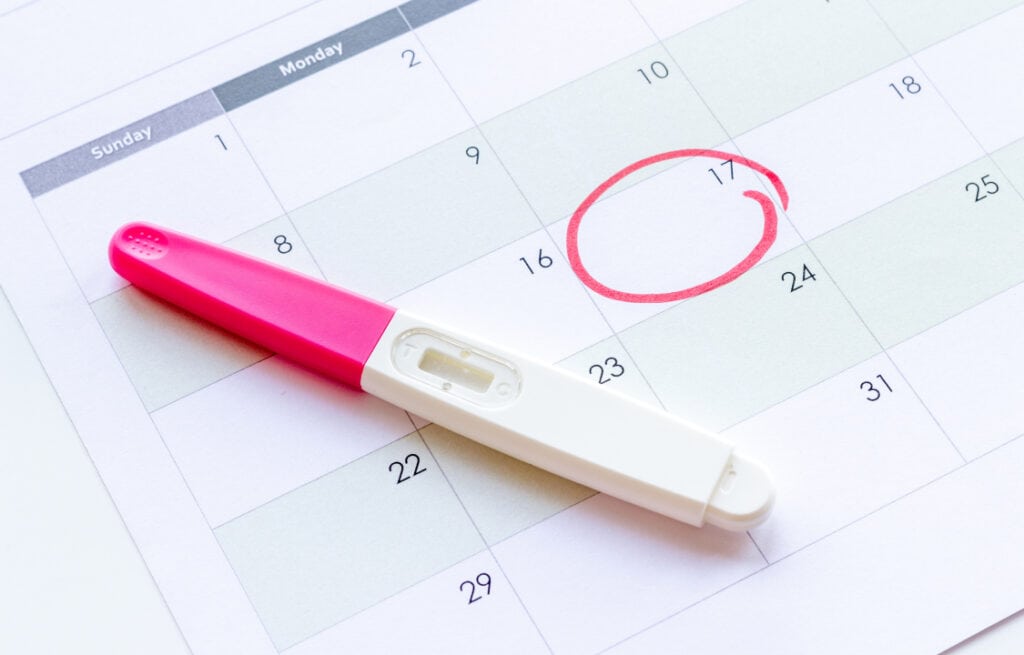
- Updated Feb 11, 2025
- Published
CRAFTED BY HUMAN
Crafted by human At Femia, we provide accurate and up-to-date information at every stage of your journey, from trying to conceive, pregnancy and postnatal support. All content is created by a real person based on in-depth research and own professional experience. Femia ensures that you will receive expert advice, strict accuracy and a personalized approach from our authors/medical experts. Learn more about our editorial policy.
FACT CHECKED
Fact checked At Femia Health, we maintain the highest standards of editorial excellence in delivering content focused on helping you conceive, guiding you through pregnancy, and supporting you postpartum. Explore our content review principles to learn how we ensure the accuracy and quality of our health and lifestyle tips for every stage of your journey.

Created with Hector Chapa, MD, FACOG, Clinical associate professor, Obstetrics and Gynecology Texas A&M University, College of Medicine in Bryan-College Station, USA
While unlikely, it is possible to get pregnant without a period. Having regular periods indicates normal menstrual cycles during which ovulation takes place. However, ovulation can take place even if you haven’t had a period for some time, making pregnancy possible.
Your chances of getting pregnant without a period vary depending on the underlying cause of absent periods.
Having irregular periods or prolonged intervals of no periods, in theory, lowers your chances of getting pregnant. This is because a possible underlying cause, such as PCOS, breastfeeding, hormonal imbalances, or medications you are taking, could be responsible for your irregular periods. Not having periods indicates an absence of ovulation in the preceding cycle, a process which eventually leads to a period if fertilization doesn’t take place.
But here’s the thing—ovulation can still happen unexpectedly after a long break without periods. So, if you’re having unprotected sex during this unpredictable time, pregnancy is still a possibility.
Femia helped 35,000 couples to optimize their fertility
Can you ovulate without a period?
Your menstrual cycle involves a few significant events, two of which are ovulation and menstruation (your actual period).
Once you have a period, your ovaries begin to prepare follicles for the release of an egg during ovulation. This is the follicular phase of your menstrual cycle. After your egg is released, around day 14-16 of your cycle (assuming a 28-day cycle), the luteal phase begins where the lining in your uterus grows in preparation for a fertilized egg. If fertilization hasn’t taken place, the egg disintegrates, and after two weeks due to the declining hormones, your uterine lining sheds as a period, completing a cycle. This cycle repeats every month.
Typically, for a menstrual period to occur, ovulation must take place in the preceding cycle. Ovulation works as a signal leading to events that trigger a period. However, in certain conditions, especially those that interrupt the normal functioning of your hormones, ovulation may not take place, subsequently leading to irregularities in your period.
👉 Find out more: Can you get pregnant when you’re not ovulating?
One such condition is PCOS. The higher-than-normal levels of androgens circulating in the body affect the hormonal balance required for ovulation to take place. Approximately 90 – 95% of women seeking infertility treatment for anovulation have PCOS, making it the leading cause of absent ovulation. However, with guided treatment and lifestyle changes spontaneous ovulation has been observed among women with PCOS.
👉 Find out more: Best age to get pregnant with PCOS: When to start and what you need to know.
Postpartum, breastfeeding, taking medications, or having other medical conditions can all impact ovulation and the regularity of your period. However, once your body starts to reset and balance out, ovulation can still occur even if you haven’t had a period.
@femia.fertility Here's how to get pregnant naturally with irregular periods! Our medical expert, LaReesa Ferdinand, shares some essential tips that can increase your chances. Save this video so you won't lose it, and drop a comment below sharing tips you've already been trying to conceive with irregular cycles. Let's learn and support each other! #irregularperiods #pcos #fertilitydoctor #expertadvice #femalehealth #education #ttc ♬ Aesthetic - Tollan Kim
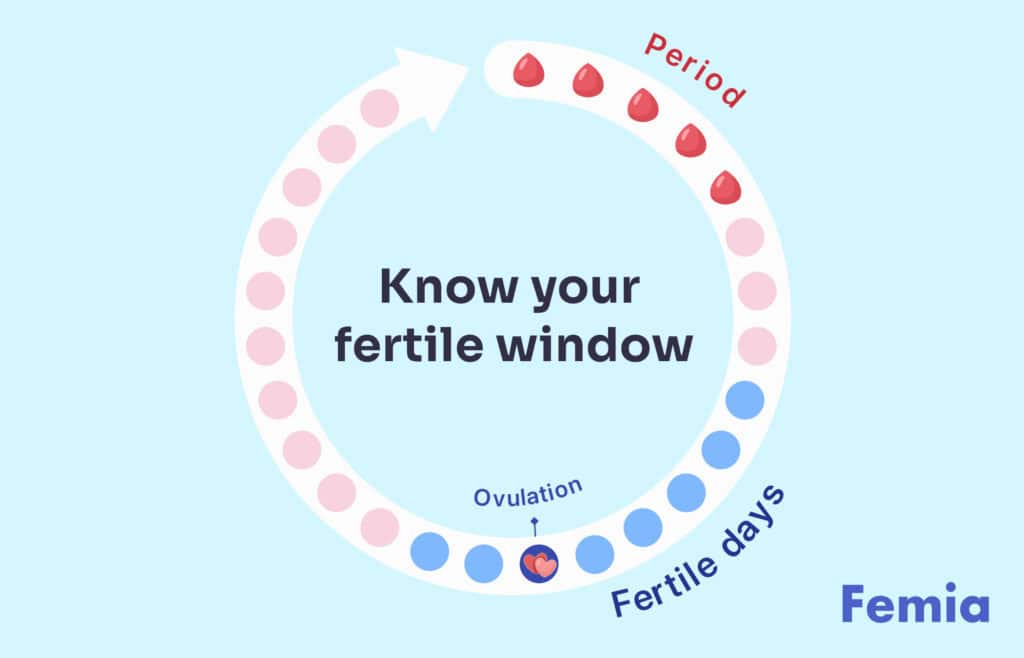
Can you ovulate without a period and get pregnant?
Even if your periods are a bit unpredictable, you can still get pregnant. It’s a little trickier to figure out when you’re ovulating, but with proper medical care and lifestyle management it’s definitely possible, often through either spontaneous ovulation or induced ovulation.
This has been observed among women documented with premature ovarian failure. With early ovarian failure, women 40 years and younger lose the natural function of their ovaries to develop follicles, leading to premature menopause. This may be due to genetic programing or autoimmunity.
A case report of three women who had experienced premature ovarian failure were given hormone therapy to facilitate menstrual cycles. This artificial induction of cycles enabled ovulation and natural pregnancy.
Similarly, a study among women with PCOS documented the chances of spontaneous ovulation without treatment to be 8.6% after three medically induced cycles.
In these conditions, and the others discussed above, women had not experienced a period for a substantial amount of time. Nonetheless, by spontaneous ovarian “reset”, spontaneous ovulation has been known to occur, although it is very unpredictable.
Can you get pregnant if you have prolonged amenorrhea?
Amenorrhea is the absence of normal menstrual cycles, often for more than three months since the previous period. For women who have previously had a period, this amenorrhea is termed secondary amenorrhea, due to an external cause affecting the normal functioning of the ovaries. Amenorrhea can be the result of various underlying medical conditions, hormonal imbalances, use of medications, or due to significant lifestyle changes.
Primary ovarian failure or insufficiency, where there is a decline in ovarian function under the age of 40 years can result in the absence of periods for a year or more. In addition, tumors, inflammation, and illness can all delay ovulation and menstruation for an extended period as well. It is important to seek a women’s healthcare provider to have an evaluation for episodes of irregular periods so the appropriate medication and therapies can be started without delay.
Similarly, having new lifestyle changes such as drastic weight loss, added stress, or excessive exercise, are all known causes to result in prolonged amenorrhea.
With prolonged amenorrhea, the key is to identify the underlying cause and manage it promptly. Once the cause of the irregular periods is determined, therapy may restore ovarian function or “override” the cycles with hormonal birth control. Remember that certain oral birth control pills result in regular periods but they still block ovulation. This is how they “override” the ovarian cycle.
There have been positive cases of women getting pregnant after prolonged amenorrhea, especially if the ovaries can still retain some function to favor ovulation.
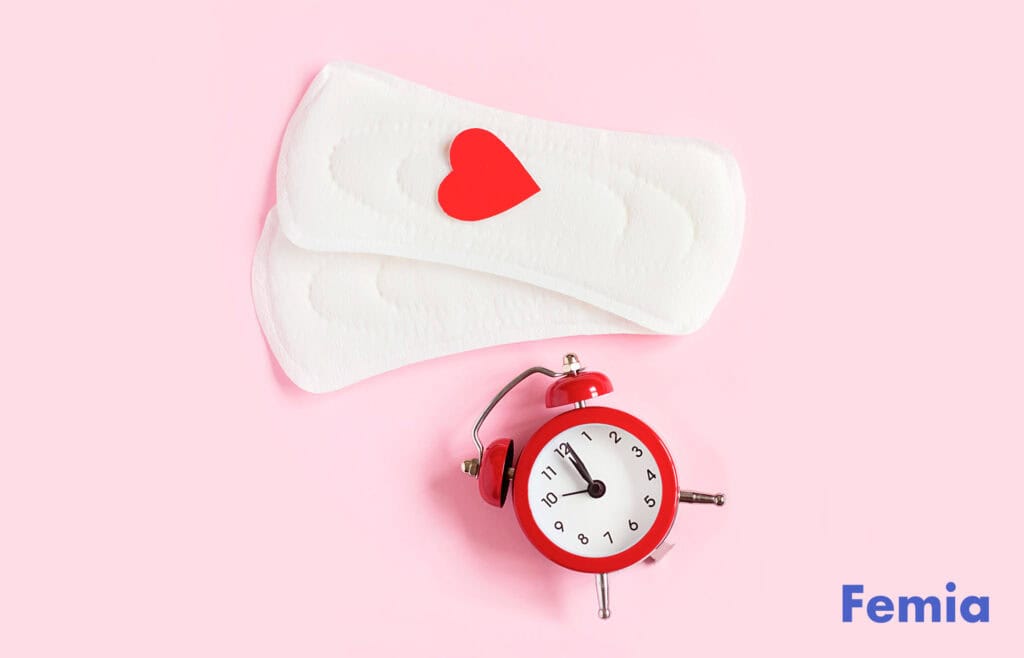
Can you get pregnant during perimenopause?
Perimenopause is the phase before menopause, noted by irregular periods. Perimenopause can last for a variable length for different women, with a median range of 4 years. Menopause is diagnosed following 12 consecutive months of amenorrhea.
Ovulatory cycles during perimenopause decline from 60% 7 years before menopause to 5% 6 months prior. This is due to the fluctuations in hormones required for ovulation. Progesterone and estrogen may be present favoring endometrial thickening and subsequent menstruation, but not all these periods are preceded by ovulation.
During perimenopause, your cycles might be irregular and ovulation can be unpredictable, sometimes happening after months without a period. This means you can still get pregnant during perimenopause if you’re having unprotected intercourse around the time you ovulate—even if it’s been a while since your last period.
However, it is important to remember that due to poor egg quality, there is a high rate of spontaneous miscarriage during this age range, and a high risk of pregnancy complications.
👉 Find out more: Can you get pregnant during perimenopause?
Femia helped 35,000 couples to optimize their fertility
What are the signs I am ovulating without having a period?
Even with regular periods, you may not always notice your physical signs indicating that you are ovulating. With regular period tracking using the Femia app, you can pinpoint ovulation-specific signs which may also be noticed even if you haven’t had a period in a while.
Some of these signs may include:
- Change in cervical mucus consistency. An increase in cervical mucus, with a wet, slippery, and stretchy consistency can be noticed around ovulation.
- Rise in basal body temperature. Your body temperature increases slightly after you ovulate. When you notice this peak in temperature, you have recently ovulated.
- Ovulation cramps or bleeding. Some women might notice lower pelvic cramping, often to one side of the pelvis around ovulation. This can sometimes be followed by bleeding or spotting for a day or two.
👉 Find out more: Understanding ovulation symptoms: Mood changes explained.
When you do ovulate, you might notice some signs like slight bloating, tender breasts, and a higher sex drive. But if you’ve gone months without a period, these subtle changes can be easy to miss.
To really pinpoint when you’re ovulating, consider using tools like an ovulation tracker app, such as Femia, or an ovulation predictor kit from your local store. For the best advice tailored to your situation, especially about getting pregnant after not having a period for a while, it’s a good idea to chat with your healthcare provider.
@femia.fertility Can you believe it? You can still get pregnant even if your periods aren’t regular! But here’s the deal—seeing your OB-GYN to sort out those irregularities can boost your chances of conceiving. Regular periods = better baby-making odds! #ttcjourney #earlypregnancy #pregnancy #fertilityjourney #earlypregnancysigns #gettingpregnant #fertilityadvice #fertilitytreatment #infertility #irregularperiods #periodproblems #fertilitytok #ovulation #unovulation ♬ original sound - Femia fertility app
Questions from the Femia community
Can I ovulate without a period?
Ovulation takes place approximately two weeks before a period is expected, in other words, around the middle of your menstrual month.
If you have irregular periods you may not know when you are ovulating, especially if you have not recently had a period. Irregular periods can be a result of PCOS, other medical conditions, breastfeeding, or recent stress. In these situations, spontaneous or induced ovulation can often take place before a period.
Can stress affect my chances of getting pregnant if I have irregular periods?
With stress, your body has high circulating levels of cortisol, which interfere with the normal signaling of ovulation hormones from the brain and in the ovaries. This can reduce the likelihood of ovulation in each cycle, also resulting in irregular periods.
With ovulation affected, your chances of getting pregnant are lower if you are under prolonged stress.
What should I do if I am trying to conceive but have irregular periods?
To increase your chances of conceiving with irregular periods, talk to your healthcare provider. Your doctor will be able to assess what the underlying cause for your cycle irregularity is. With proper treatment and appropriate lifestyle changes, ovulation can start again increasing your likelihood of conceiving.
The bottom line
While the chances of getting pregnant without a period are low, it is not impossible.
Regular periods (menstruation) typically implies spontaneous ovulation, about two weeks prior. However, some women do have menstruation and yet not ovulate.
With certain medical conditions like stress, lifestyle changes, breastfeeding, perimenopause, or if you are taking some medications, you are likely to miss your periods for a few months or longer. During this time, with appropriate treatment and lifestyle changes, your ovaries might ovulate even if you haven’t had a period. This could lead to pregnancy if unprotected sex occurred. To better understand your chances of pregnancy without a period, consult with your healthcare provider.
References
- Dennett, Carrie C., and Judy Simon. “The Role of Polycystic Ovary Syndrome in Reproductive and Metabolic Health: Overview and Approaches for Treatment.” Diabetes Spectrum, vol. 28, no. 2, May 2015, pp. 116–20. https://doi.org/10.2337/diaspect.28.2.116.
- Balen, Adam H., et al. “The Management of Anovulatory Infertility in Women With Polycystic Ovary Syndrome: An Analysis of the Evidence to Support the Development of Global WHO Guidance.” Human Reproduction Update, vol. 22, no. 6, Aug. 2016, pp. 687–708. https://doi.org/10.1093/humupd/dmw025.
- Zhang, Wan-Yu, et al. “Intermittent Spontaneous Ovulation in Patients With Premature Ovarian Failure: Three Case Reports and Review of Literature.” World Journal of Clinical Cases, vol. 11, no. 31, Nov. 2023, pp. 7647–55. https://doi.org/10.12998/wjcc.v11.i31.7647.
- Sleem, Mostafa A., et al. “Spontaneous Ovulation and Pregnancy in Women With Polycystic Ovarian Disease; a Cross Sectional Study.” International Journal of Reproduction, Contraception, Obstetrics and Gynecology, vol. 7, no. 2, Jan. 2018, p. 359. https://doi.org/10.18203/2320-1770.ijrcog20180148.
- Nawaz, Gul, et al. “Amenorrhea.” StatPearls – NCBI Bookshelf, 25 Feb. 2024, www.ncbi.nlm.nih.gov/books/NBK482168.
- Chen, Ling, et al. “The Effects of Weight Loss-Related Amenorrhea on Women’s Health and the Therapeutic Approaches: A Narrative Review.” Annals of Translational Medicine, vol. 11, no. 2, Jan. 2023, p. 132. https://doi.org/10.21037/atm-22-6366.
- Bonazza, Federica, et al. “Psychological Factors in Functional Hypothalamic Amenorrhea: A Systematic Review and Meta-analysis.” Frontiers in Endocrinology, vol. 14, Jan. 2023, https://doi.org/10.3389/fendo.2023.981491.
- Huhmann, Kimberly. “Menses Requires Energy: A Review of How Disordered Eating, Excessive Exercise, and High Stress Lead to Menstrual Irregularities.” Clinical Therapeutics, vol. 42, no. 3, Mar. 2020, pp. 401–07. https://doi.org/10.1016/j.clinthera.2020.01.016.
- Das, Ananya, et al. “Spontaneous Pregnancy in Primary Amenorrhea; a Case Report.” PubMed Central (PMC), 1 June 2010, www.ncbi.nlm.nih.gov/pmc/articles/PMC3719271.
- Delamater, Lara, and Nanette Santoro. “Management of the Perimenopause.” Clinical Obstetrics and Gynecology, vol. 61, no. 3, Sept. 2018, pp. 419–32. https://doi.org/10.1097/grf.0000000000000389.
- Starrach, Teresa, et al. “Perimenopausal Bone Loss Is Associated With Ovulatory Activity—Results of the PeKnO Study (Perimenopausal Bone Density and Ovulation).” Diagnostics, vol. 12, no. 2, Jan. 2022, p. 305. https://doi.org/10.3390/diagnostics12020305.

Wondering if you can eat blue cheese while pregnant? Learn when blue cheese is safe, how to check for pasteurization, and guidelines for enjoying it during pregnancy.
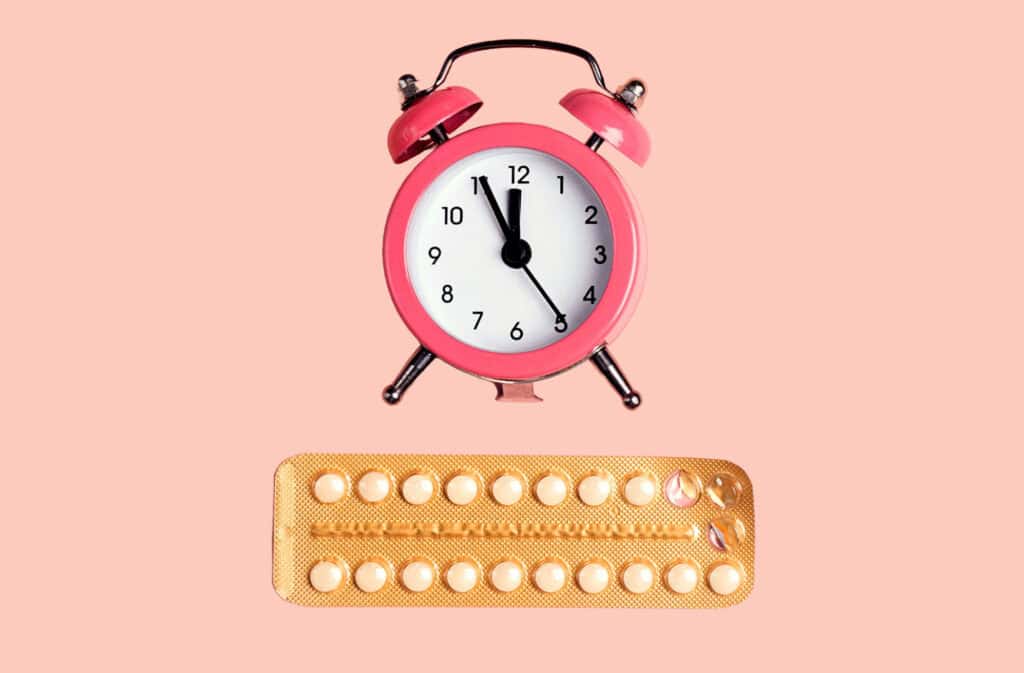
Learn how long to wait before trying to conceive after stopping different types of birth control, and understand how your body adjusts to increase your chances of pregnancy.
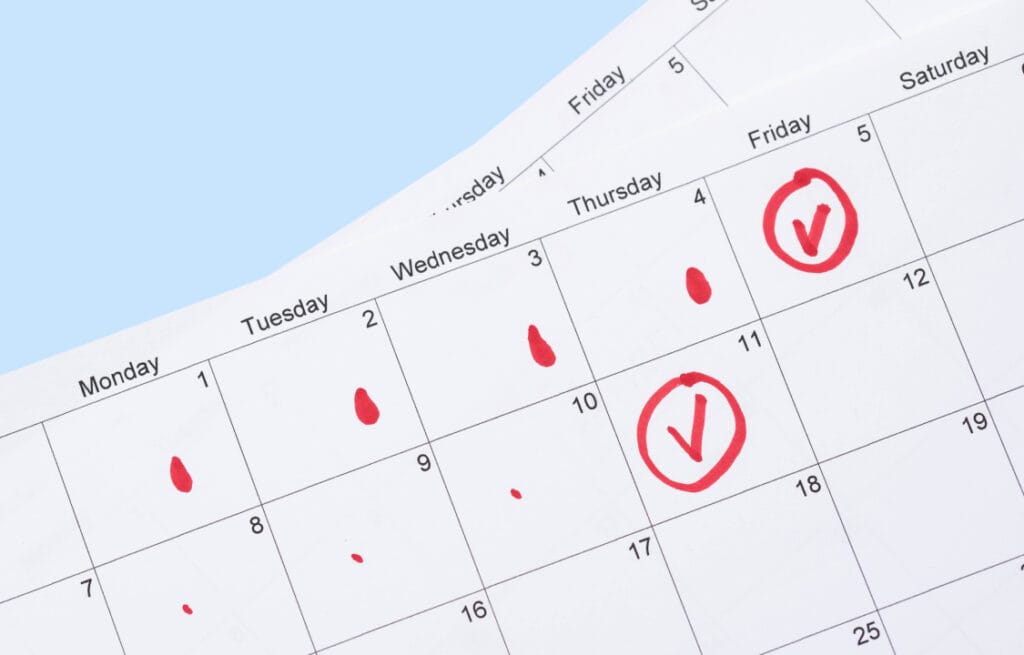
Fertile window or not? Understand your fertility levels better and learn all the tools and tricks to track your high-fertility days more accurately.
